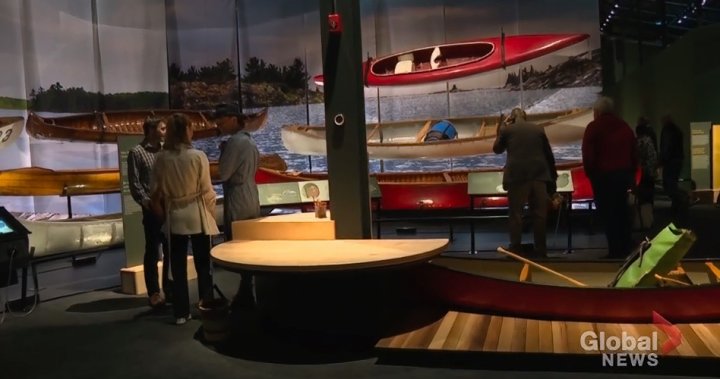The Canadian Canoe Museum in Peterborough, Ontario has officially opened its doors to the public after relocating to a new, larger facility on Ashburnham Drive. The museum, which was previously housed in a cramped and aging building on Monaghan Road, now boasts over 600 watercraft, 500 paddles, and hundreds of other artifacts within its 65,000-square-foot space. The new location also features outdoor amenities such as canoe and kayak launches onto Little Lake, as well as docks and an area for outdoor education. The museum’s executive director, Carolyn Hyslop, expressed her excitement about the new facility, which she described as a “home” for the canoes, people, and stories that the museum represents. The $45-million project was fully funded thanks to generous donations from individuals, organizations, and all levels of government, with the federal government contributing $10 million and the W. Garfield Weston Foundation contributing $7.5 million.
The construction of the new museum began in the fall of October 2021, but faced delays due to obstacles related to the COVID-19 pandemic. Despite these challenges, dignitaries, supporters, and donors gathered for a grand opening ceremony on Saturday, where Peterborough Mayor Jeff Leal spoke about the city’s history as the former home of the iconic Peterborough Canoe Company. He praised the museum as a world-class destination that preserves and shares the stories of Indigenous peoples, early settlers, and modern-day adventurers. Prime Minister Justin Trudeau also sent a video message congratulating the museum staff on the reopening, emphasizing the importance of preserving the country’s Indigenous heritage and the role of canoes in Canadian identity. The museum was recently recognized by National Geographic as one of the 20 best cultural spots in the world, further solidifying its reputation as a premier cultural destination.
Ontario Premier Doug Ford also extended his congratulations to the museum, reflecting on the significance of canoes in Ontario and Canada’s history. He paid tribute to Kirk Wipper, a family friend who helped found the museum before his passing in 2011. The Lt.-Gov. of Ontario, Edith Dumont, highlighted the museum’s importance in preserving the history of the canoe, which intersects with the histories of Indigenous peoples who invented and continue to guide its evolution. Chief Keith Knott of Curve Lake First Nation emphasized the need to preserve the canoe as a symbol of the past, ensuring that its history is passed down to future generations. Margaret Froh, President of the Métis Nation of Ontario, underscored the museum’s role in storytelling Canada’s history and the ongoing work of reconciliation with First Nations.
Admission to the Canadian Canoe Museum is $20 for adults, $18 for seniors, $15 for youth ages five to 17, and free for children under five. The museum is open Monday to Sunday from 10 a.m. to 5 p.m., with extended hours until 8 p.m. on Thursdays. Visitors can also participate in tours, workshops, and summer paddle camps to further engage with the museum’s collection and educational offerings. The new facility represents a significant milestone for the museum and the community of Peterborough, providing a modern and spacious home for its extensive collection of watercraft and artifacts. As a cultural hub and source of inspiration, the Canadian Canoe Museum serves as a testament to the collaborative efforts of supporters, partners, and donors who made the vision of the museum’s relocation a reality.













